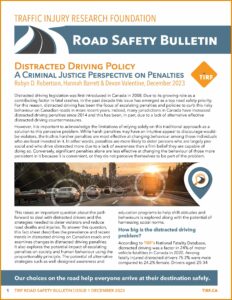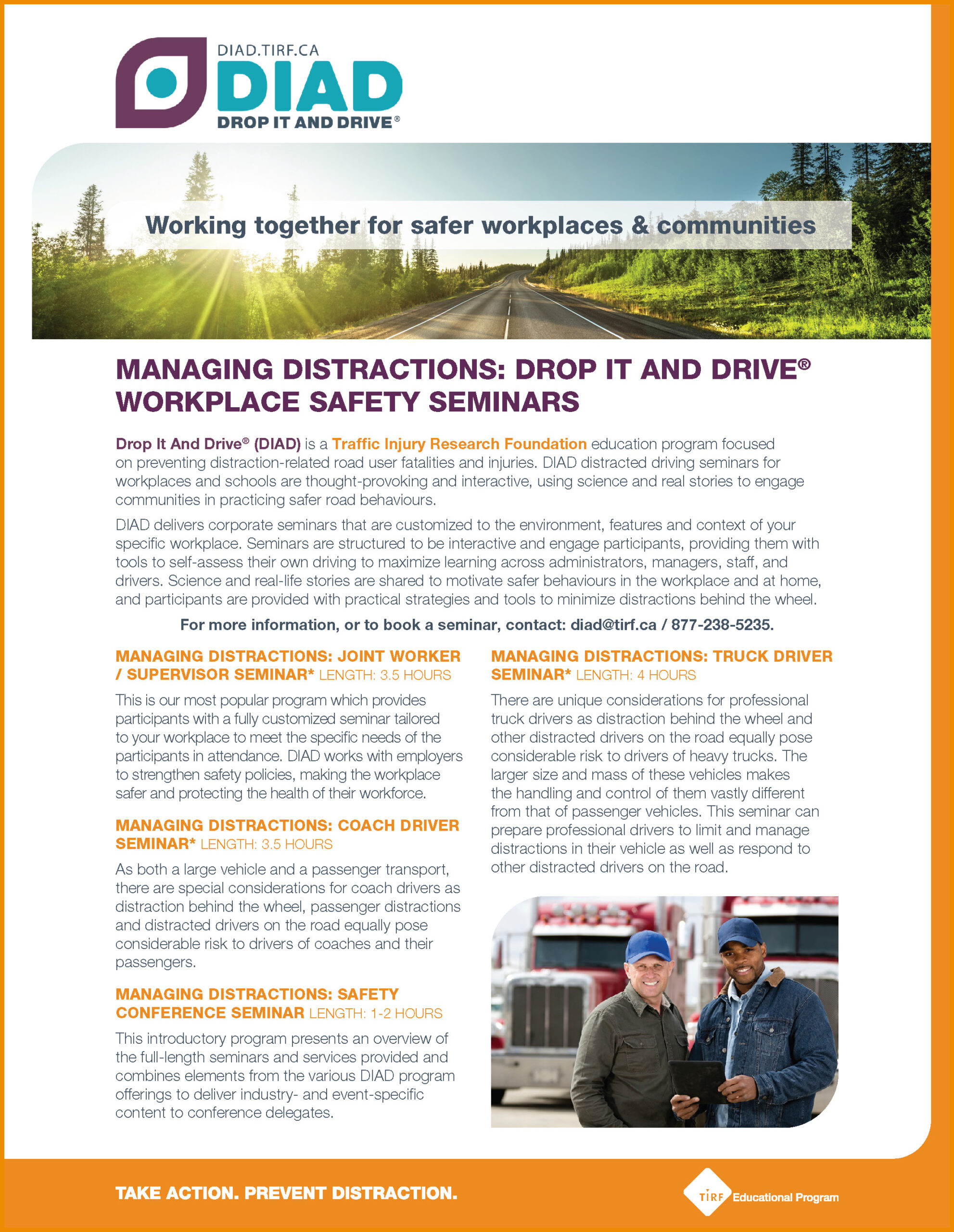Drop It And Drive® (DIAD) is a Traffic Injury Research Foundation (TIRF) education program focused on preventing distraction-related road user fatalities and injuries.
TIRF is internationally recognized for its cutting-edge research, and delivery of objective, evidence-based knowledge to support the development, implementation, and evaluation of road safety programs, effective advocacy, and consultation.
DIAD distracted driving seminars for workplaces and schools are thought-provoking and interactive, using science and real stories to engage communities in practicing safer road behaviours.
NEW (December 2023)
 TIRF Road Safety Bulletin – Distracted Driving Policy: A Criminal Justice Perspective on Penalties
TIRF Road Safety Bulletin – Distracted Driving Policy: A Criminal Justice Perspective on Penalties
This new fact sheet describes the prevalence and recent trends in distracted driving on Canadian roads and examines changes in distracted driving penalties. It also examines the potential impact of escalating penalties on society and human behaviour using the proportionality principle. The potential of alternative strategies such as well-designed awareness and education programs to help shift attitudes and behaviours is explored along with the potential of harnessing social norms.
Managing Distractions Corporate Seminars & Webinars
Distraction-related road user fatalities and injuries are fast overtaking all other forms of road-related deaths and injuries both on-the-job AND off-the-job.
DIAD delivers corporate seminars that are customized to the environment, features and context of your specific workplace.
Seminars are structured to be thought-provoking and interactive to maximize learning across administrators, managers and staff. DIAD works with employers to make the workplace safer and protect the health of their workforce.
Science and real-life stories are shared to motivate safer behaviours in the workplace and at home, and participants are provided with practical strategies and tools to minimize distractions behind the wheel.
“Completely different thought process when I got in my truck afterwards. I will be highly recommending this to other branches & organizations. The facts, cases and science all put together truly make an impact.”
– DIAD seminar participant, Tolko Industries Ltd. trucking contractor group, Prince Albert, SK August 4, 2017
Six Managing Distractions workplace safety seminars are currently offered with both in-person and virtual delivery options and additional seminar customization also available to meet individual organizational and community needs:
- Joint Worker or Driver & Supervisor
- Coach Driver
- Truck Driver
- Driving Instructor
- Health Professionals
- Safety Conference

